Adventurous Kate contains affiliate links. If you make a purchase through these links, I will earn a commission at no extra cost to you. Thanks!
So you’ve figured out the best things to do in Mexico — but now you want to know what NOT to do in Mexico. Ha! No worries. That’s a very good thing. I’m sure you don’t want to make any major mistakes on your trip!
Mexico is a country I love dearly and one of my favorite places in the world. I try to get there at least once a year, and I’ve spent time living there.
I’ve written guides about what not to do in New York or Croatia. Those have a lot of unusual tips.
Mexico is different, though. So much of what tourists get wrong when they visit Mexico stems from one issue — that Americans are continuously fed media that depicts Mexico as a dangerous place.
Once you get over those fears, you’ll be on your way to a much better trip.
Table of Contents
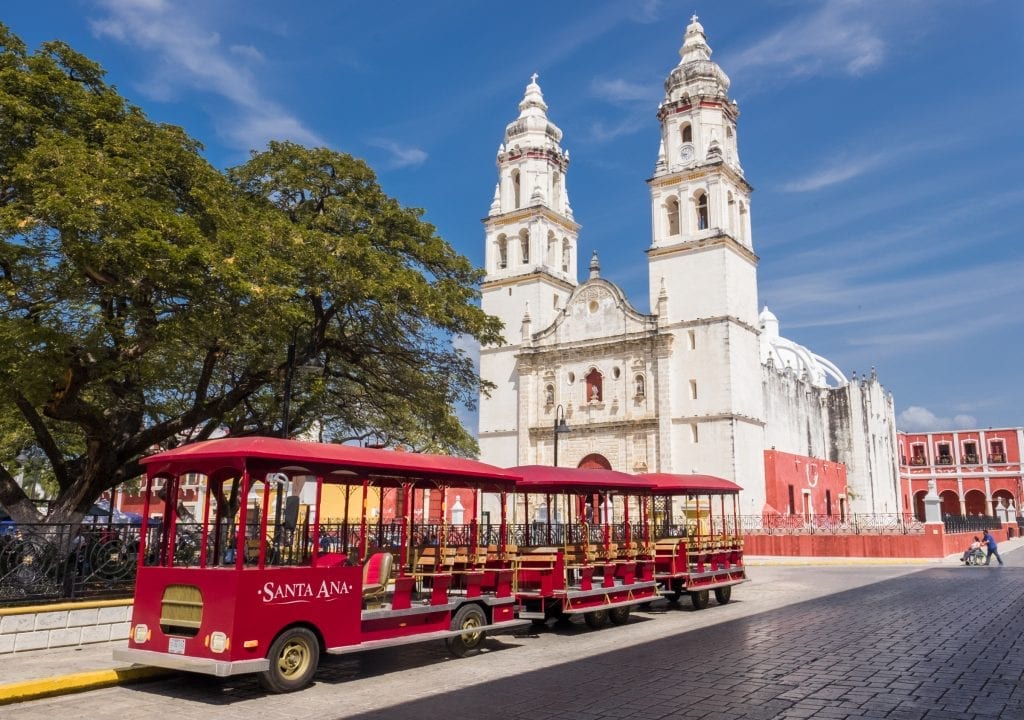
Don’t assume that Mexico is a dangerous hellhole.
If you judge Mexico based on what is shown on American cable news, I don’t blame you for being terrified. The only stories that get reported are about cartels and violence.
That would be like if other countries only ran news stories about America if they were about gangs and meth labs. Imagine if, say, a Canadian said they were going on vacation to the Grand Canyon and their friend said, “Oh my God, aren’t you worried about gangs?”
That’s what it sounds like when you keep bringing up cartels in Mexico.
The cartels are a big problem in Mexico. But they are not omnipresent in Mexico. The cartels are concentrated in small pockets of Mexico, mostly in the far north in areas where tourists don’t go. The vast majority of Mexicans are normal people living their lives in peace without having to think twice about cartels, the way you don’t think twice about gangs.
Bringing up the dangers of cartels to people in Mexico is bizarre, insensitive, and a textbook example of what not to do in Mexico.
The vast majority of places in Mexico are just as safe as your hometown — if not safer. Some cities in Mexico, like Mérida, are among the safest cities in North America.
And yes, that goes for women traveling alone as well. I have a lot of experience traveling alone in Mexico, and I feel very safe doing so.
The likeliest you are to get in trouble is if you yourself attempt to buy drugs in Mexico, as many tourists do in beach resort towns like Cancún. Because of this, drug dealers in Mexico (who are not always Mexican) often approach young adults who look like they’re going out to party. And this is a reason why I’m not a huge fan of the Cancún-to-Tulum corridor.
Most of staying safe in Mexico comes down to common sense: don’t walk around the streets blackout drunk. Lock up your valuables in your accommodation. Don’t wear flashy jewelry. Keep in touch with someone at home who knows your itinerary.
So many travelers visit Mexico year after year without leaving the grounds of their resort, terrified of what awaits them on the other side. They’re missing out. Which brings me to my next point…
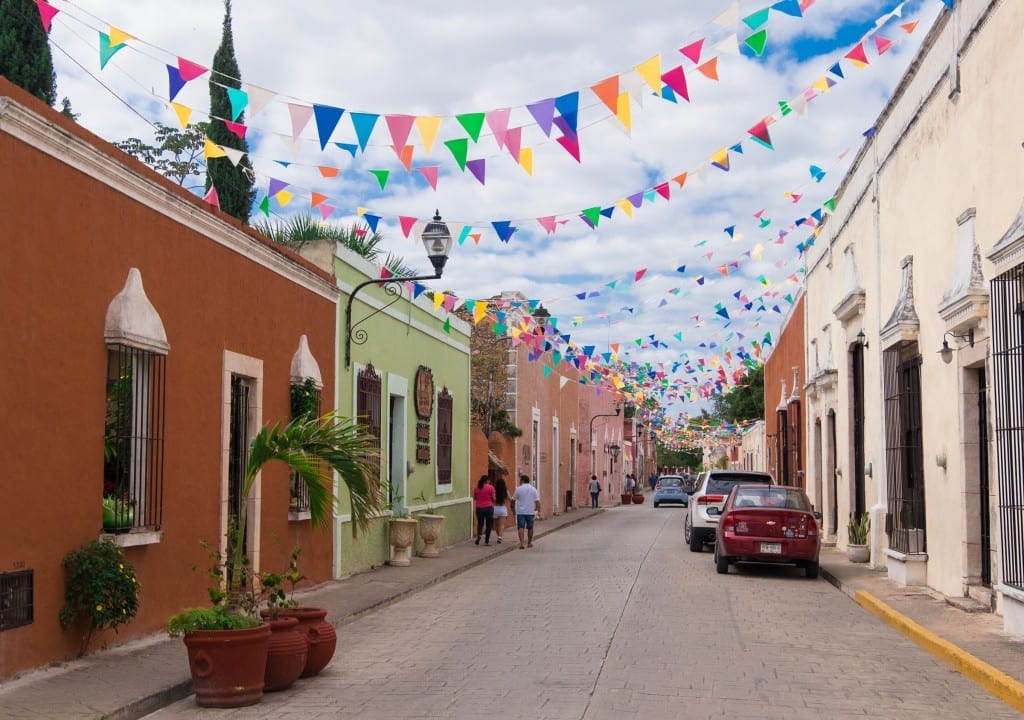
Don’t spend your whole trip at the beach.
Mexico has some lovely beaches…but there’s SO much more to Mexico than the beach! For the record, if you are crazy stressed out and NEED to go lie on the beach for a week, I totally get that. Go ahead and destress yourself.
But it pains me to see people return to Mexico again and again without going more than half a mile from the coastline.
So much of what makes Mexico great is inland. From the megapolis of Mexico City to the chilled out city center of Oaxaca, from the wild nature of Chiapas to the cenotes of the Yucatán, there is so much to enjoy. Inland is a lot cheaper than beach resort towns, too.
So how do you plan a trip to Mexico if you’ve only gone for beach vacations? Where do you even start? I have some recommendations.
I wrote a two-week Mexico itinerary that does include some beach time — on the wonderful Isla Holbox, as well as some Bacalar time — but it also includes cool cities, ruins, cenotes, and nature. If you want an easy yet well-rounded trip to Mexico, this is a great itinerary.
My other recommendation is to spend a full week in the city of Oaxaca — there is SO much to do there that you’ll have tons to explore without having to put in long journeys.
And if you’d rather join a group for a planned trip, consider a Mexico group tour with G Adventures. Their two-week Classic Mexico Adventure goes to lots of my favorite places!
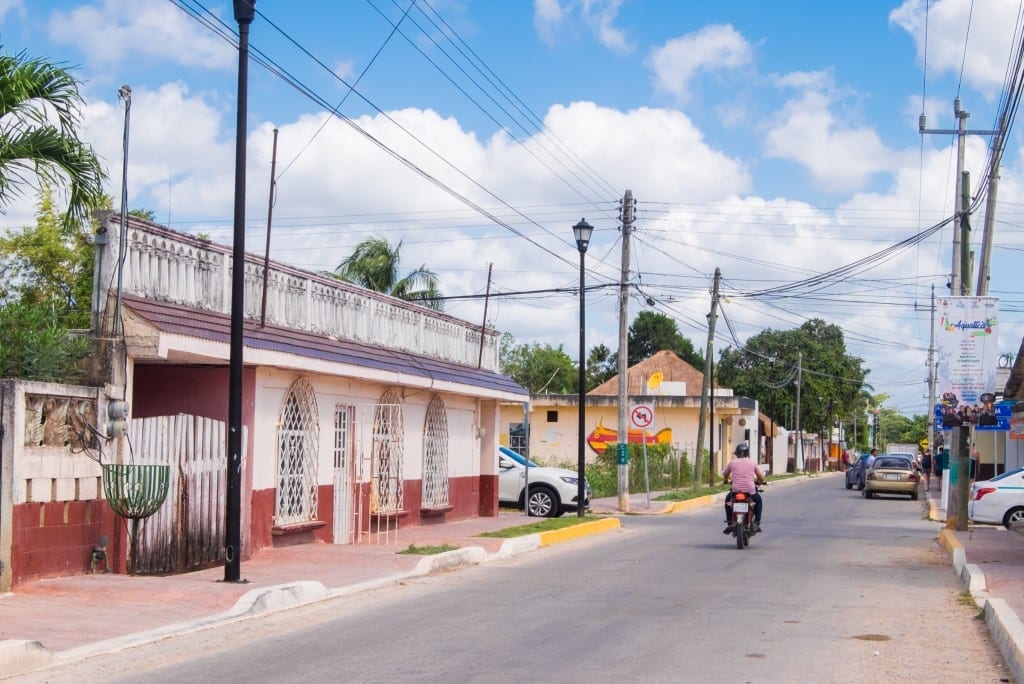
Don’t go to public toilets empty-handed.
Most public toilets in Mexico charge around 10 pesos (about 50 cents) to use the public toilets. You pay that money to the attendant and they give you some toilet paper to take in with you.
Pretty basic. You don’t want to end up in NEED of a toilet without enough money on you to actually be able to use one.
And while you’re at it, don’t throw the toilet paper in the toilet. Most places in Mexico don’t have the strength to flush toilet paper. If that’s the case, there will be a trash can next to the toilet for you to throw your toilet paper into.
It’s a good idea to keep small change on you when in Mexico. Lots of places will ask you for the exact change if possible.
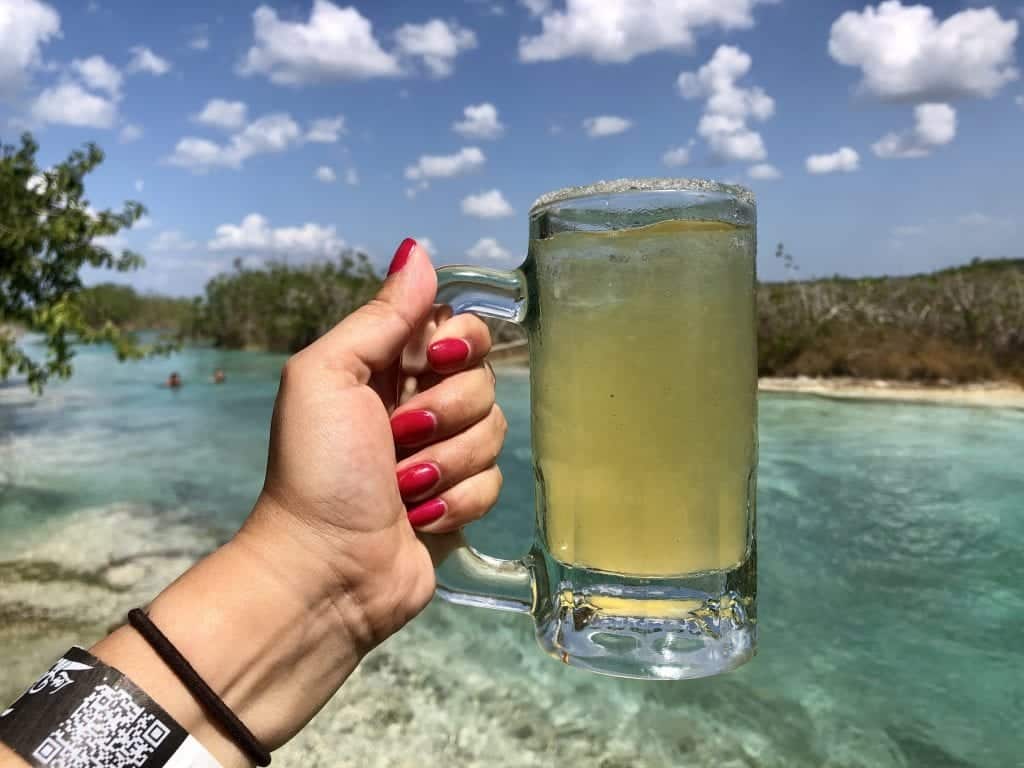
Don’t drink Coronas the whole time.
Corona has done some GREAT marketing over the years — all those ads with two people sitting on a white sand beach, waves gently lapping, two Coronas on a table between them. It’s like they have equated Corona with a Mexican paradise.
Do it once. Post it on Instagram. Get it out of your system. Then try some better Mexican beers.
There are lots of high quality beers in Mexico. Victoria is one of the best common Mexican beers. Pacífico is another great choice. Mexico’s craft beer scene is growing and you’ll see new breweries popping up in different cities.
And Mexicans also enjoy creating concoctions out of beer! You may have heard of a michelada (kind of like a beer-based Bloody Mary with tomato juice and spices), but there’s also the chelada — just beer, ice, lime juice, and salt. There’s nothing better than a chelada on a hot day in Mexico!
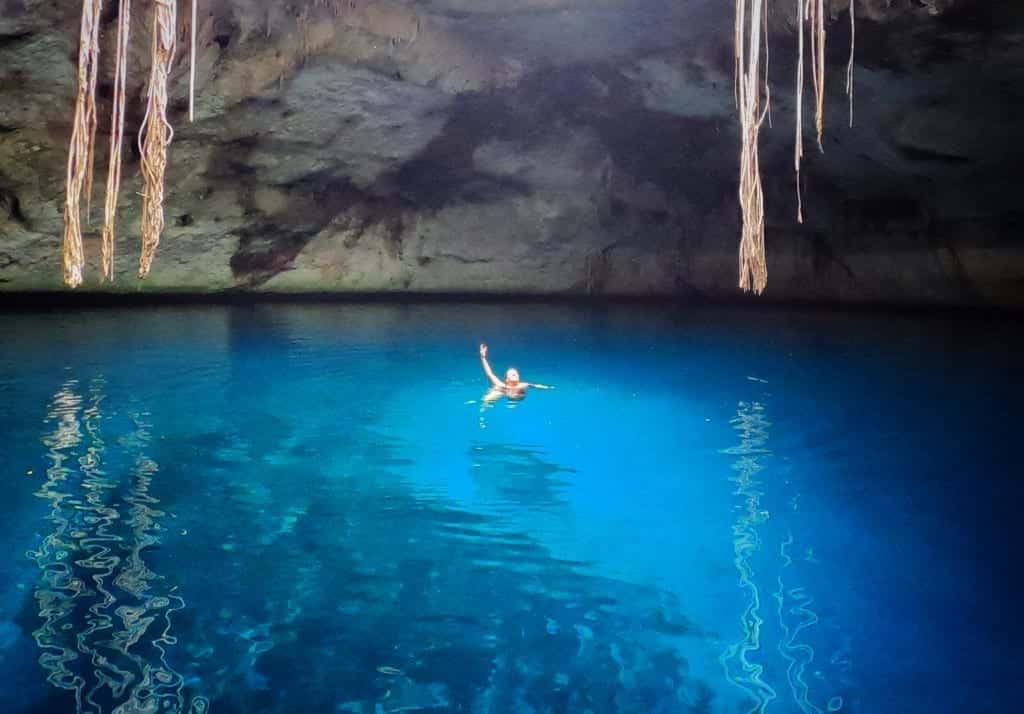
Don’t use regular sunscreen.
If you’re just walking around town for the day, wearing regular sunscreen is fine. But if you’re entering a body of water in Mexico — any body of water — you should use reef safe sunscreen instead.
“Reef safe sunscreen” is a bit of a misnomer — it was invented to protect delicate coral reefs from the harmful ingredients in conventional sunscreen, but it actually protects all kinds of organisms. Because of the name, people assume reef safe sunscreen is only for when you’re swimming in and around coral reefs. But reef safe sunscreen is essential for swimming in any delicate water environment.
And Mexico has a LOT of delicate water environments. Mexicans ask that you use reef safe sunscreen whenever you swim in cenotes, in Lake Bacalar, and in many other bodies of water, from the Hierve el Agua near Oaxaca to the hot springs of Hidalgo.
You can get reef safe sunscreen here. Thank you for being considerate to Mexico’s environment.
Read More: Ultimate Guide to 50+ Best Cenotes in Mexico
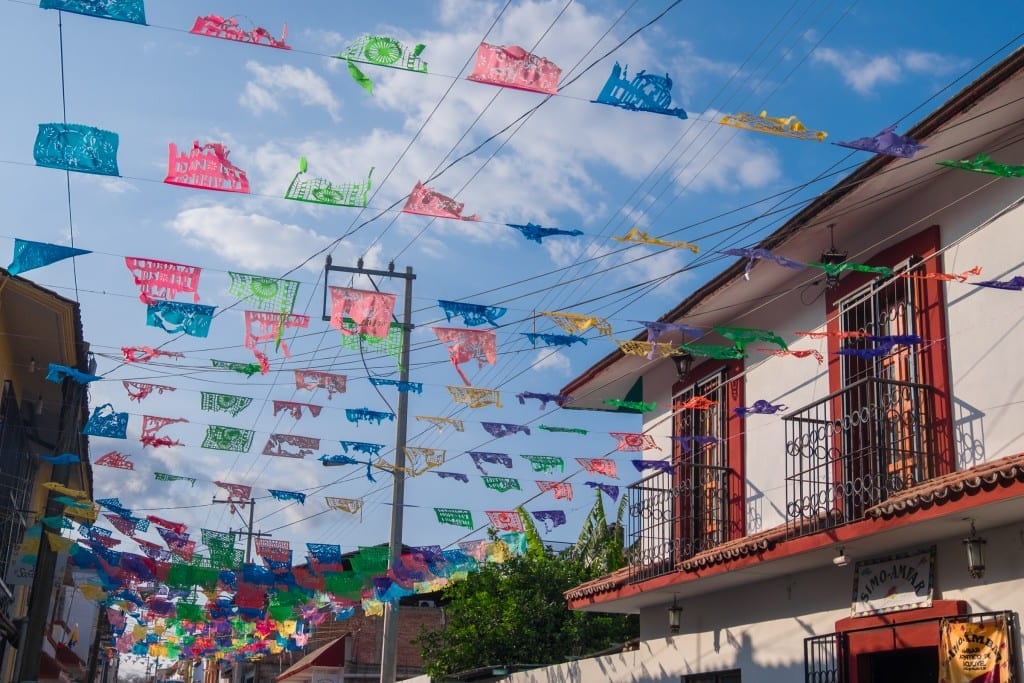
Don’t only speak English.
Speaking a few words of the local language is something you should do everywhere in the world. Just learning the words for “hello” and “thank you” shows good manners and thanks locals for welcoming you.
You know these words if you were raised on Sesame Street, like so many of us were. Buenos días. Gracias. Pump it up with buenos tardes, buenos noches, sí, no, uno, dos, tres, donde está, habla ingles, and por favor. Dos cervezas, por favor.
And trust me, guys…Spanish is as easy as languages get. I say this as someone who has studied Spanish, French, Italian, and Czech. Spanish is the easiest language by far. Even if you’re terrible at languages, you can learn a few Spanish phrases.
Don’t be one of those tourists who walks up to Mexicans and starts speaking English out of the blue.
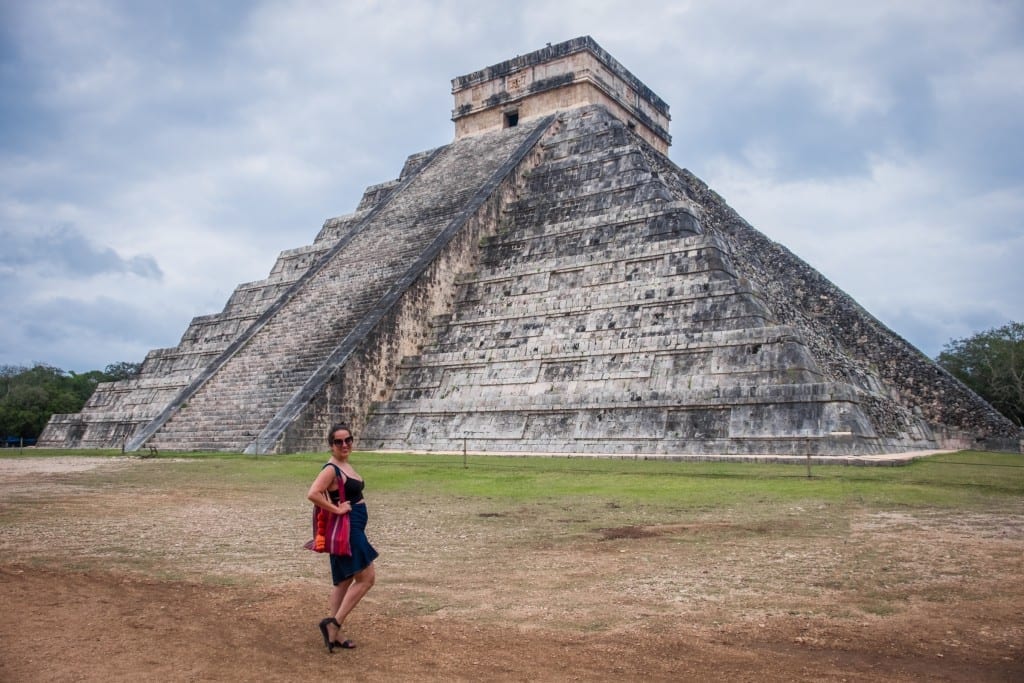
Don’t feel pressure to visit ruins if they’re not your thing.
One of the most popular day trips from Cancún and the Maya Riviera is to the ruins of Chichen Itzá, a UNESCO World Heritage Site and some of the most impressive ruins in Mexico. But they’re not the right choice for everyone.
I’m not a huge fan of ruins. They don’t excite me. I mainly visit them because I’m a travel writer and need to be able to write comprehensively about the places I visit.
And a lot of people are like that, too. Go to ruins and you’ll see miserable tourists clamoring for the tiny bit of shade and wondering why they wasted a precious vacation day on this. They went because they thought they should.
Do you not want to visit ruins? You don’t have to. This is your permission slip not to go.
If you do decide to visit Chichen Itzá in particular, here’s how to make it better: visit independently with a car rental; go on a cloudy day if possible; avoid Sundays (it’s free for Mexicans and super-crowded); and visit a cenote after (I absolutely loved Hacienda San Lorenzo Oxman, one of my favorite cenotes in Mexico).
Finally, you might enjoy other ruins more than the super-popular megasites like Chichen Itzá and Mexico City’s Teotihuacan. In the Yucatán, I enjoyed Mayapán and Uxmal much more than Chichen Itzá. They were less crowded, smaller and more digestible, and you could climb parts of them!
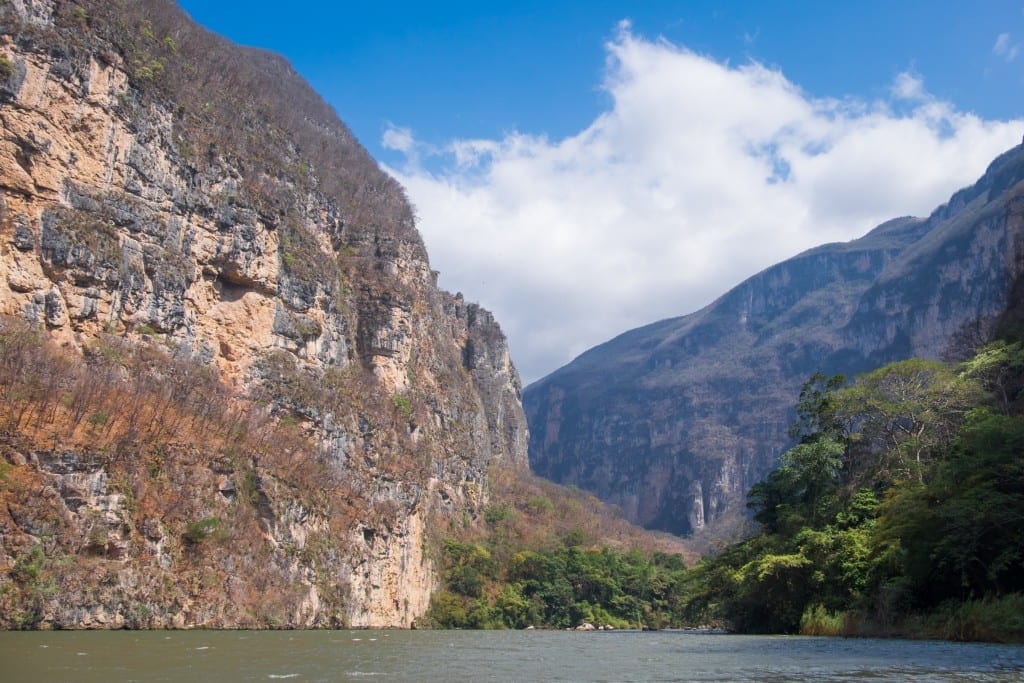
Don’t constantly buy bottled water.
The water is not safe to drink in Mexico, and that includes ice. So how do you stay safe in Mexico? A lot of travelers take this as a cue to buy bottled water wherever they go, but this is incredibly wasteful and Mexico is not great about recycling.
First off, know that many Mexicans get reusable water jugs delivered to their homes, and these are standard for hotels and restaurants. If you’re staying in a mid-range hotel or better, a pitcher of fresh water is often provided; if you’re staying in a rental, you can buy a jug of water at an Oxxo or another convenience store. When it’s empty, bring it back to exchange it for a new one.
When you’re out and about, you should carry a reusable water bottle to stay hydrated.
I personally use a Lifestraw Water Bottle when I don’t know if I’ll have access to drinkable water. It’s a water bottle with a straw that purifies the water as you drink it. It’s a bit slow to drink from but you get used to it.
Another option is to use a SteriPen, a battery-powdered device that purifies water with UV light. You can use it in any glass or bottle of water and it makes the water safe to drink.
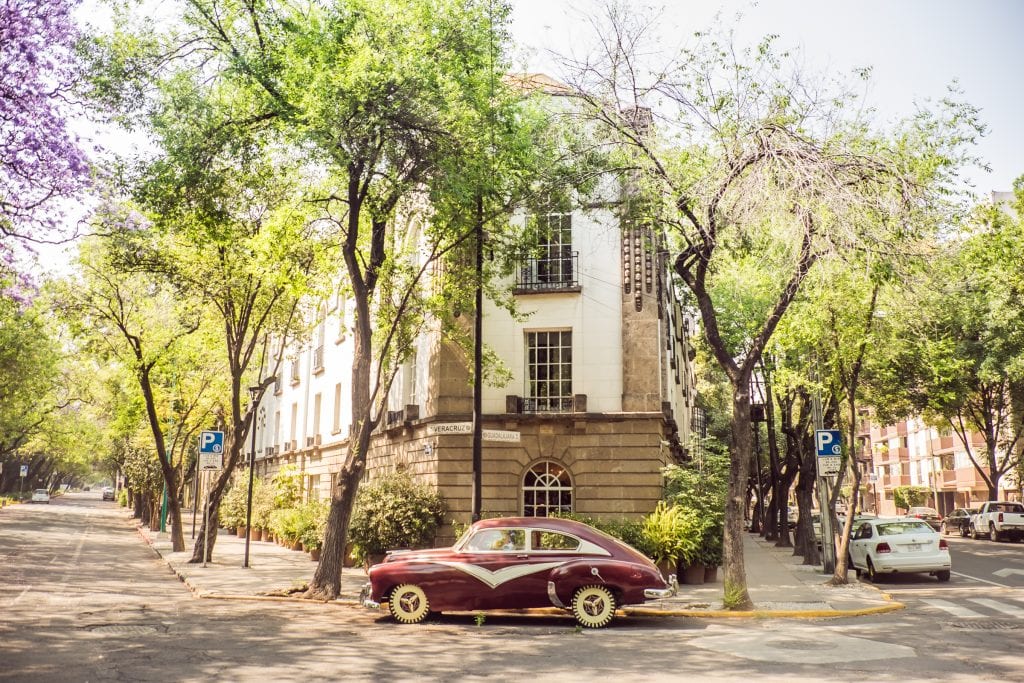
Don’t plan a trip without checking the weather first.
Don’t assume Mexico is always sunny and hot! Mexico is an enormous country with incredibly varied climates.
Parts of Mexico can be a lot cooler than you expect. Mexico City is at a high elevation and gets cold in the winter months and at night. Cities like San Miguel de Allende and Guanajuato can be a lot cooler than you expect. You may want to pack a light puffer jacket (this one from Uniqlo is perfect) and some jeans.
Showing up in Mexico City in December clad in a spaghetti strap romper is a textbook example of what not to do in Mexico — for so many reasons!
And sometimes there are micro-climates within regions — San Cristóbal de las Casas in the Chiapas region is at a high elevation, and it was foggy and chilly when I was there in March. But as soon as I left the city and descended into Sumidero Canyon, it got sunny and warm again.
Conversely, some parts of Mexico can be much hotter than you expect. Mérida in the Yucatán is one of the hottest parts of Mexico, and April and May are when you have peak heat and humidity. Locals spend these months indoors; I wouldn’t even recommend a traveler visit Mérida outside of December to March.
Finally, be careful of hurricane season, which lasts roughly from June through November with peak hurricanes in August and September. Much of the Yucatán Peninsula is vulnerable to hurricanes, including Cancún, Tulum, and the Mayan Riviera.
You may be able to find cheap accommodation at Mexican beach resorts during hurricane season, but it’s for a reason. I always use travel insurance in Mexico, but it’s especially important during hurricane season in case you need to evacuate or cancel your trip. I use and recommend World Nomads for trips to Mexico.
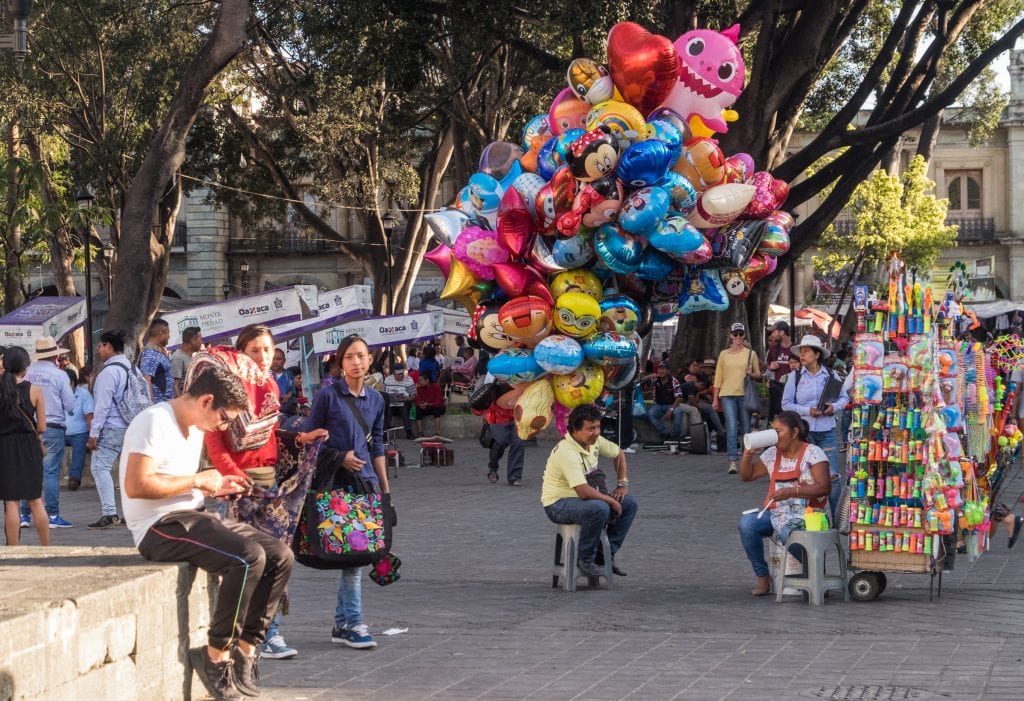
Don’t forget your earplugs.
I love Mexico beyond all measure — but one thing that drives me crazy about Mexico is how LOUD of a country it is. Trucks drive down the street blasting ads. People party with their families late into the night. Music is the accompaniment to literally everything. Taking a bus ride? Hope you enjoy the movie that they’re blasting at top volume!
And if it’s late and your neighbors are still partying, don’t show up and scream, “Do you realize what time it is?!” Talk about a cultural faux pas! Though, honestly, most Mexicans are so nice, they’d probably offer you a beer.
For that reason, make sure you bring earplugs on your trip to Mexico. Not to wear all the time — but they are a savior for working, for sleeping, and for long bus rides. This is a good set in a convenient travel case.
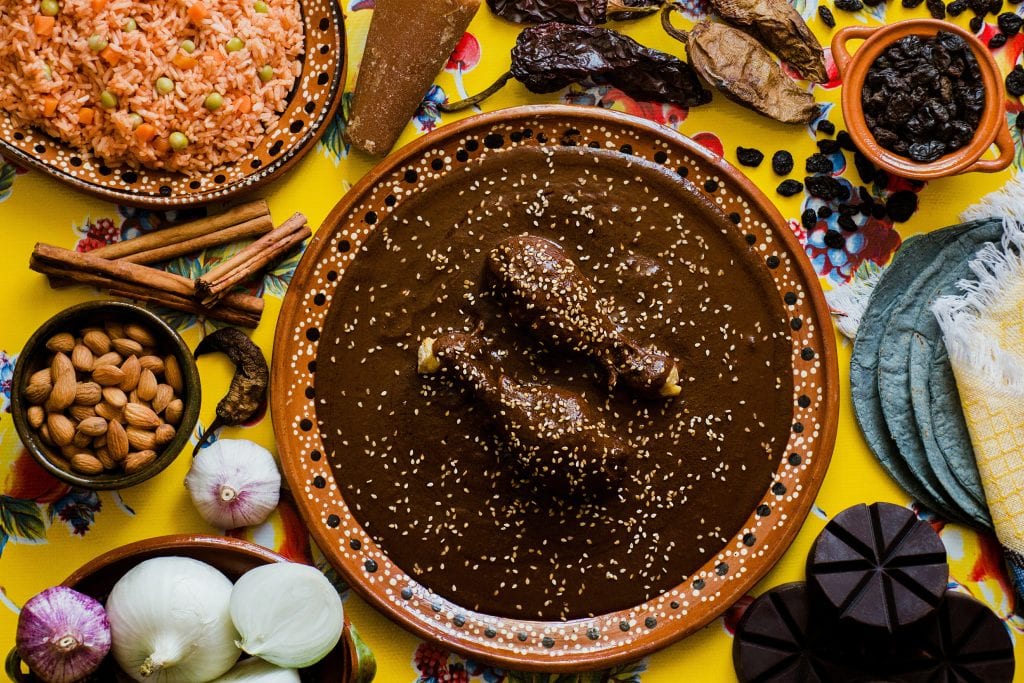
Don’t just eat tacos the whole time.
Tacos are glorious. Tacos are varied. One of the best things about Mexico is getting to eat tacos multiple times per day and not having it be weird at all.
And sometimes it seems like literally everything is some kind of taco. Tortillas get served with just about everything, from soups to roasted chickens!
But Mexican cuisine is far more than tacos. In fact, Mexican cuisine is the greatest culinary tradition in the Americas, based in Indigenous traditions and experimented with for centuries.
Before you take your trip, do some research on the culinary specialties of the region you’re visiting. Not Mexico the country — the region. The absolute best Mexican cuisine is regional.
And if you’re highly food-focused, I recommend visiting Oaxaca and Mexico City, which both have strong culinary traditions and outstanding high-end restaurants that cost a fraction of what you’d pay in the States.
Mexico is so much more than you think it is — and that’s a WONDERFUL thing.
I hope you have a fantastic trip to Mexico!
Planning a Trip to Mexico:
Places to Visit in the Yucatán and Mexico’s Caribbean Coast:
- Things to Do in Bacalar, Mexico, The Lake of Seven Colors
- Guide to Isla Holbox, Mexico’s Most Magical Island
- 50+ Best Cenotes in Mexico
Places to Visit in Inland Mexico:
- The Absolute Best Things to Do in Oaxaca, Mexico
- Best Mexico City Neighborhoods to Stay In
- 35+ Best Things to Do in Guanajuato, Mexico
- How to Visit Sumidero Canyon from San Cristobal de las Casas
Places to Visit on Mexico’s Pacific Coast:
- 24 Fabulous Things to Do in Sayulita, Mexico
- Guide to Bucerías, Mexico, an alternative to Puerto Vallarta
More on What NOT To Do:
- What NOT to Do in Prague
- What NOT to Do in Italy
- What NOT to Do in Croatia
- What NOT to Do in Iceland
- What NOT to Do in Mexico
- What NOT to Do in New York City
- What NOT to Do in Boston
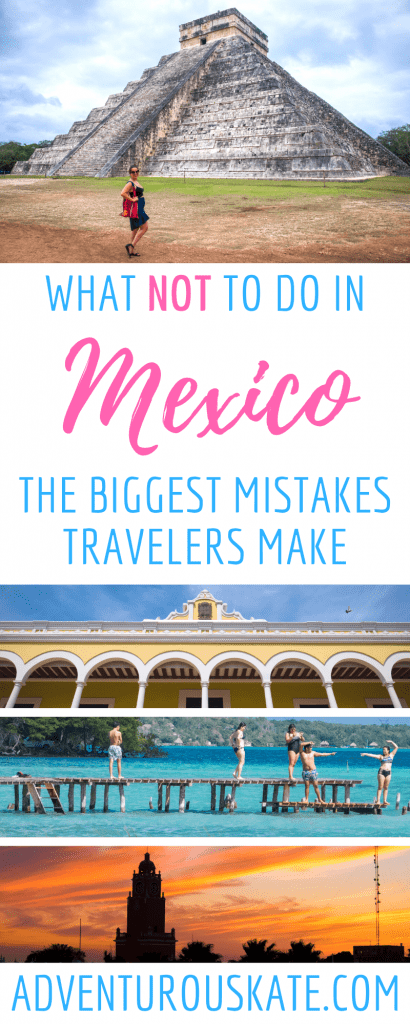
Have you been to Mexico? What would you add to this list?